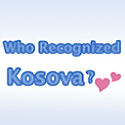So far, I haven’t had any problems yet on the African portion of our mission, as far as visas and/or immigration issues go. No country has ever made me turn around with my plane and go back. Many times, they have been nice enough to let me enter either at the airport or borders, even though I may not have had the appropriate paperwork from time to time. But Nigeria is not letting me have this luxury.
There was absolutely no way that they were going to let me get around the proper legal requirements to enter their country and believe me, I tried every angle my friends. This was very frustrating as you can imagine, having to backtrack my flying to a previous country, especially given the fact that I had previously bought a visa for Nigeria and it had already expired. Many times on our mission, my original time line and reality have often not coincided (due to waiting for visas, not being able to get travel to the next country until getting the proper paperwork processed, etc). Though I’ve tried to avoid this, and tried to continue on to some countries even though I haven’t had all of the paperwork required – as I mentioned before, most of the countries have been sympathetic and have always allowed me in. With Nigeria, not only did I have to re-route to a different country, I also had to reapply for a second visa, which sometimes makes it very expensive to continue our work with the mission. I guess that these frustrations are part of my commitment to continue our mission, despite the struggling and suffering that I sometimes experience along the way.
Here in Africa, my original plan was to follow a pre-programmed flight pattern of visiting country after country based on their geographical nearness. But I have had to change my flight plans many times already due to trying to accommodate the every-changing circumstances of our mission. If I had continued on with my original plans, I would still be sitting in Senegal somewhere waiting for the neighboring countries visa and permits to come through. Instead, I end up having to make quick decisions that don’t fit with an orderly plan and skipping countries in the hopes to go back to them eventually. If there’s one thing I’ve learned throughout this mission, it’s that circumstances change all the time and that I have to be prepared to continue on in very creative ways.
But enough with Nigeria for now, let’s move on to my current destination, which is Guinea-Equatorial. It looks nice enough. I see lots of construction everywhere and the infrastructure looks better than some of the previous places that I’ve visited so far. It looks like there are lots of new apartment buildings here, many modern business buildings, new roads, modern bridges, great parks, etc.
From what I have learned, Guinea-Equatorial has recently found some natural wealth underneath their land and water supply. In 1997, it began oil production and is now the 3rd largest oil supplier in Sub-Saharan Africa. Although the oil initially helped the country, in other ways it has been destroying in. According to many intellectuals and other people that I have spoken with here, it seems that once the country heard the magic word of petrol being found, it gave up on everything else that it was doing, including the basic things like subsistence farming. Everyone thought that money would just start flowing into their bank accounts, which would fix everything. Unfortunately, they were wrong, because the people who actually benefited most from the money were the countries elite. Though Equatorial-Guinea is one of the most prosperous countries in Africa, at least 70% of its people still live on less than $2 a day.
Because of the oil boom, people here gave up production of basic necessities like fruits and vegetables, cacao and cotton. Now, they have had to change their way of life so much so that they must now rely on imports from other countries, which ends up costing them much more money. They have forgotten that their soil is still very fertile and that they can still plane everything that they need to survive. My new journalist friend told me that they are now starting to realize that they are paying much more than necessary (as high as $1USD for a simple tomato) for basic necessities. I hope that someday soon, the people here will be able to live off of their land and grow their own food again.
Other than that, this country is beautiful. Malabo, which is the capital of the country, sits on Bioko Island, which is volcanic and very mountainous. I guess that it is better for the elite maybe to be living safely on the island and away from the commoners. People here are banned from criticizing public figures and, unfortunately, this country has one of the worst human rights records in the world.
One thing that I noticed very quickly here is that there seems to be a lot of Chinese people here. It seems like they are taking over the place. I am learning that participate in the business world, own businesses like construction companies, service businesses, restaurants, etc. Initially, I have been told that they first started immigrating here to work in the cacao fields and coffee plantations. But it seems like they have benefited from the oil boom as well.
One thing that did confuse me here, though, was the media. Apparently, there is one national newspaper which is published once a week. However, they have several ‘reviews’ that are also called newspapers. Those reviews though only get published once a month. The other confusion that I had was that I didn’t understand yet that the government here has substantial control over what the newspapers actually report. I started getting the impression that all that is reported here is what the government does, anything else (world happenings, the daily news, things happening in the lives of the people, etc.) is not important. It was only later that I learned that the current President here has been cited by Reporters without Borders as a ‘predator’ of press freedom.
I am grateful that I already knew how to speak Spanish before visiting this country. Though most of the other countries that I’ve visited so far have spoken French, Spanish is actually the official language of Equatorial-Guinea. Thank god I was still able to communicate here or I would have gotten nothing accomplished during my stay.
Thanks to my two new media friends who were willing to talk with me, despite the governments heavy control over their work. Mr. Patricion Mene Miche Abeme was an absolute wonderful gentleman who had lots of wisdom and some great values. He worked for the paper ‘La Gaceta‘. Mr. Laureano Nsue Nguems also helped me, from the newspaper ‘Ebano‘.
The Ministry of Foreign Affairs here were very nice and Vlora Citaku’s letter was hand delivered to the Ministry’s Secretary, Ms. Mercedes Seriche. She promised me that she will follow up with her boss and the government regarding our cause.
I can’t forget to mention a few other people in this country that helped me out quite a bit: first, my taxi friend Mr. Blas Ela Riesa, who was very quiet and works hard for his money. I was glad to help him out though with giving him my taxi fare because his poor car seemed like it was about to give up at any moment and made a lot of noise while we were traveling around; Mr. Pat. U Osuji who helped me out tremendously by helping me obtain that guarded Nigerian visa that I needed after paying the fee of $100 USD or 50,000 CFA; and finally, I want to say a special thank you to the pilots that I met from ‘Cronos’ airlines of South Africa. Captain Anne Berghout, Captain Denis Hewartsons and First Officer George Pretorius all helped me out very much during my stay here in Equatoria-Guinea.
Next country is Nigeria.














Aloha man! I quite believe your opinions. I must say i appreciate what you’re doing here. Get back to your website weekly